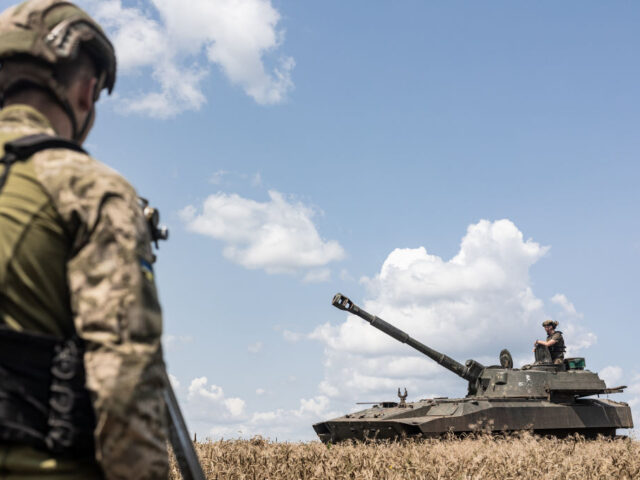Russia’s invasion of Ukraine is causing a food crisis that will force more migrants from the developing world to head to Europe, so the continent should give Kyiv more weapons to end the conflict sooner, they say.
Hunger in the developing world drives mass migration to Europe, and Russia is deliberately targeting Ukraine’s food export infrastructure which in peacetime forwards millions of tons of grain to Asia, Africa, and the Middle East, a top Kyiv official points out in a pitch for further weapon deliveries. If Europe wants to slow down migratory waves — which are again surging to levels last seen in the 2015-16 migrant crisis — the continent should give more weapons to Ukraine quickly, says deputy chairman of the Ukrainian Agrarian Council Denys Marchuk.
There is a clear link between how quickly European nations hand over stocks of weapons to Ukraine and how many migrants will attempt to travel to Europe, Marchuk said in an appeal for missiles on Ukrainian Radio yesterday. He said, in comments meant for European decision-makers: “Ukraine needs more air defense systems and weapons to repel the enemy and make them weaker. Unfortunately, the world somehow reacted very weakly and, as a result, also became hostages of Russia’s war in Ukraine, as the war of aggression is not only against our state.
Global Food Crisis: EU Border Force Bracing for ‘Waves’ of Mass Migration as Global South Goes Hungryhttps://t.co/rWfJp5Fcoz
— Breitbart London (@BreitbartLondon) July 12, 2022
“It is food aggression and food terrorism to the whole world, which will lead to an increase in food prices… For poor countries, there will be a problem with increasing risks of hunger. The possibility of waves of migrations is not excluded. People will go to more prosperous countries, in particular the European Union… In these conditions, it is necessary to speed up armaments,” he added.
This “food terrorism” is deliberate Moscow policy, he said, remarking that Russia understands that food exports are one of the key elements of Ukraine’s economy, and by stopping Ukraine from exporting the global price of grain rises, meaning Russian farmers earn more from their own exports.
Russia’s invasion of Ukraine has impacted the agricultural industry since the beginning, with some allegations of intentional strikes against farm machinery and grain storage facilities. Strikes have also targeted export infrastructure as well, including ports and ships through which bulky food products are typically conveyed worldwide: a single bulk grain carrier can move the same amount of food as hundreds or even thousands of trucks at once.
These attacks have intensified since Russia broke with the Black Sea Grain Initiative last week, an agreement which allowed a safe passage for grain ships out of Ukraine and to the Mediterranean. The port of Odessa, as well as several other Ukrainian ports, have been bombed routinely since.
The idea of Russia’s war in Ukraine driving global migration to Europe by jacking up food prices is by no means novel. A July 2022 reports noted how the European Union’s own Frontex border force was preparing itself for fresh “waves” of mass migration as hunger increased in the developing world. Agency spokesman Aija Kalnaja said then: “You know that the transport of wheat from Ukraine is hampered. And this will create waves of migration. So we are preparing for that.”
Unrelated to the specific form of migration alluded by the Ukrainian Agrarian Council’s Denys Marchuk is Ukrainian refugees themselves, who have fled to the European Union in enormous numbers to escape the violence. While generally welcomed with open arms including by Ukraine’s neighbour Poland where there are nearly one and a half million Ukrainians who have arrived since the war started again last year, it is at a cost and the end of fighting will see many return home.
Yet possibly not all. As research earlier this month found, nearly half of Ukrainian refugees in Germany said they want to stay in Germany “forever” or at least for “a few more years”. Just 31 per cent of those polled said they want to return to their homeland upon the conclusion of the war.
Russia Preparing to ‘Enforce Blockade on Ukraine’ With Warships, Says UKhttps://t.co/BMq3QZvkcd
— Breitbart London (@BreitbartLondon) July 26, 2023

COMMENTS
Please let us know if you're having issues with commenting.